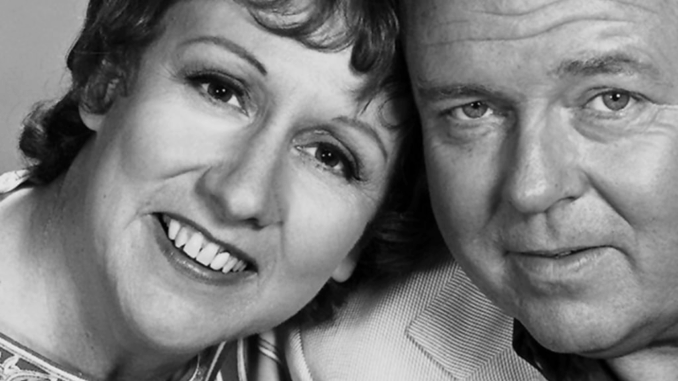
Maude (CBS, 1972-78)
One of two instances where Lear gave Archie Bunker such a perfect foil that the character soon earned their own excellent spin-off. In this case, it was Bea Arthur as Edith Bunker’s cousin Maude, an outspoken liberal middle-aged woman living with her fourth husband (Bill Macy’s Walter), her adult daughter Carol (Adrienne Barbeau), and Carol’s son Phillip (Brian Morrison). Though Lear had much more in common politically with Maude than he did with Archie, Maude frequently made her the butt of the joke, pointing out the many hypocrisies and foibles of limousine liberals. (This was especially apparent in her relationship with Esther Rolle as her maid Florida, who would go on to be the original central character of Good Times.) Maude frequently broke new ground for the comedy arena, like showing Maude in therapy, or, most famously, an early episode — broadcast two months before the Supreme Court’s decision in Roe v. Wade went into law — where Maude gets an abortion.
The first two seasons are streaming on Pluto.
The Jeffersons (CBS, 1975-85)
Lear’s longest-running series was less vocally about politics than the others on this list, in large part because its very existence was political. In moving Archie Bunker’s next door neighbor George Jefferson (Sherman Hemsley) and his wife Louise (Isabelle Sanford) from working-class queens to a deluxe apartment in the skies of the Upper East Side, Lear and company were projecting images of Black wealth and excellence into millions of American homes every week for a decade. On top of that, the Jeffersons were now neighbors and close friends with Tom (Franklin Cover) and Helen (Roxie Roker), whose interracial marriage was still considered risque for TV in the mid-Seventies. Hemsley did just fine moving from a burr in Archie’s side to the center of his own show, with the preening George easily coming into conflict with everyone around him — his beloved “Weezie” included.

The fourth and fifth seasons are streaming on on Pluto.
All in the Family (CBS, 1971-79)
It took Lear a while to get it right with this adaptation of the British comedy Till Death Us Do Part, about a reactionary, bigoted blue-collar worker getting into constant arguments with his liberal son-in-law. Two pilots were filmed for ABC, where Carroll O’Connor and Jean Stapleton’s characters were named Archie and Edith Justice, while different actors played daughter Gloria and son-in-law Mike. Then ABC got cold feet about how audiences would react to a sitcom that would regularly talk about politics, racism, and other divisive issues of the day. ABC’s loss was a huge gain for CBS, which was looking to erase its image as the home of gentle rural sitcoms like Petticoat Junction. All in the Family (now with Sally Struthers and Rob Reiner as Gloria and Mike) would soon define the entire CBS brand, becoming such a sensation that President Nixon was heard talking about it on the Watergate tapes. Where ABC feared that Archie and Mike’s debates would scare away viewers on both sides of the aisle, the show instead drew in everyone, in part because Lear had inadvertently built a Rorschach test of a TV show. Liberals watched and saw Archie as a clown representing an era (glorified in the show’s nostalgic theme song) that had deservedly passed. But conservatives viewers felt like the show’s sympathies lay primarily with Archie, while Mike was its primary comic target. The truth was more complex than that, as the series couldn’t help but develop a deeper understanding of Archie, even as it palpably despised his worst beliefs. And, as would later happen with Maude, Mike became an easy way for the show’s liberal writers to get out their most self-lacerating humor. But regardless of intent or interpretation, the mere fact that a huge audience was eager to watch a show that was both so political and so coarse in its humor — both Archie’s language and the frequent sound of his “terlet” flushing off-screen — shattered all kinds of conventional wisdom within the business about what viewers would and would not accept. It’s not hard to draw a line, for instance, between Archie Bunker and Tony Soprano, as problematic lead characters whom audiences couldn’t help but be fascinated by. As a comedy, as a character study, and at times as pure drama, All in the Family was, is, and will always be one of the best things ever made for American television.
